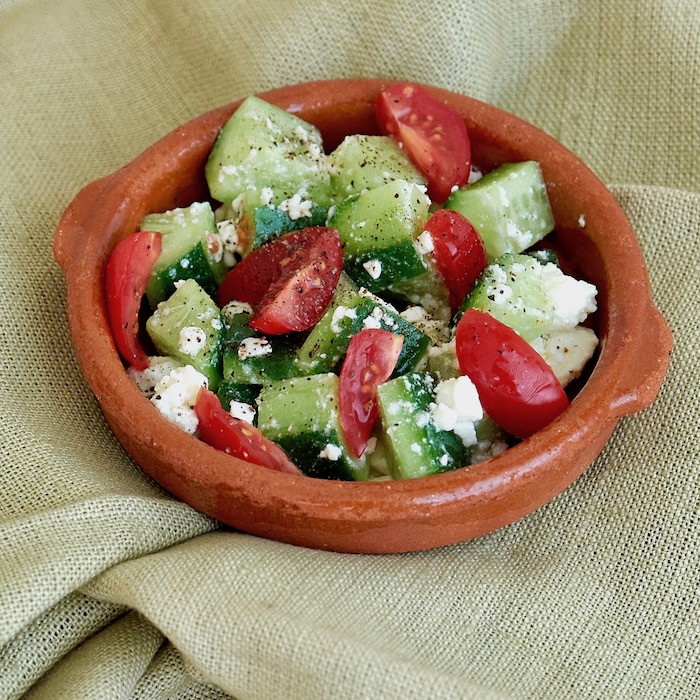

I love the salty tang of Feta-style cheese, especially combined with cooling cucumber. Traditional Greek Feta is made from sheep milk, sometimes with a little goat milk added; it has PDO status, meaning only cheese produced to specific criteria within a certain part of Greece can now be called “Feta” (spelled with one ‘t’). Similar brined white sheep milk cheeses have been made all over the Balkans and Middle East since antiquity and are occasionally still marketed as ‘fetta’ (with a double ‘t’). One of my favourites is sirene from Bulgaria, which used to be called ‘Bulgarian fetta’ and is now simply sold as ‘white sheep milk cheese’. It’s available in tubs from Middle Eastern grocers and is great to have on hand in the fridge to add tang to all sorts of dishes. I often serve this cucumber tomato & Feta salad alongside grilled meat, but also like it as a light meal with some crusty bread and a glass of rosé. Crittenden Estate pinot noir rosé is a beauty – saignée style, lean and minerally with a great creamy mouthfeel that’s perfect with tangy Feta-style cheeses. For a salad using authentic Greek Feta, see the video below.
Serves 4 as a side dish
Share page on:








Feta is a brined white sheep milk cheese made in certain parts of Greece. It can contain up to 30% goat milk and has PDO status within Europe.
Feta means ‘slice’ in Greek. Feta cheese is traditionally cut into slices and packed into barrels full of brine to age.
Previously called ‘Bulgarian feta’, serene is the brined white sheep milk cheese of Bulgaria. Since Greece achieved PDO status for Feta, it’s now generally sold as ‘white sheep milk cheese’.
PDO (protected designation of origin) status is an accreditation granted to certain products by the European Union. It protects that product’s name and means that products that aren’t made within the designated area and to the specified criteria can’t use the protected name. Champagne is perhaps the best known example.